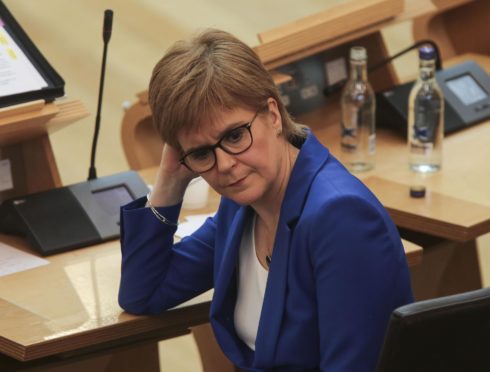Some in the SNP are looking forward to a glorious 2021. The coronavirus crisis ought to end, or at least subside. And many expect the party to ace the Holyrood elections in May, restore their overall majority and begin the process that will lead to a second independence referendum.
But then some in the SNP are blinkered by that ultimate end of independence.
The trick to successfully governing or running a political party is to spot what’s going on at the periphery. It could be emerging talent or innovative policy. You bring that into the mainstream and take credit. It could be internal squabbling, a new faction, a rival constructing an alternative power base. You stop that in its tracks before it detracts from your goals and messaging.
Emerging issues
There is much going on in the SNP periphery right now.
Recent internal elections exposed vicious factionalism. Attitudes towards the transgender community have become a battleground. Those of us who’ve watched the party for decades are astounded to see the party’s fabled internal discipline disintegrate. For example, see the fiery Twitter exchange between Aberdeen MP Kirsty Blackman and her Westminster colleague Joanna Cherry earlier this month in which the former accused some in the SNP of lying and ‘empire building’. Strong stuff. And possibly a taste of what’s to come in 2021.
Disunity tends to play badly with the electorate. And voters get their say next year. But in a political feedback loop the latter factor dampens the former.
The one thing guaranteed to hold the nationalist coalition together is a ballot box battle. It’s no coincidence that discipline is fraying following an unusually long spell without an election of one sort or another to fight. (2018 is exceptional in recent Scottish history in being election-less, but the party was so spooked by losing seats in 2017 after Sturgeon bungled her demands for a referendum that members tended to toe the line.)
The party’s smarter brains can’t wait till the Holyrood election campaign gets underway in spring. It’ll “get the party marching together again” one figure close to the leadership told me. But constant warfare is unsustainable and it’ll end one of two ways – defeat or disillusionment.
What if the party fails to scoop a majority in May? Expectations have been stoked, the result is all but taken for granted and that may breed fatal complacency.
Yet another momentous year
The SNP appear to have little to fear from the opposition. Douglas Ross will clear the low bar set by his predecessor Jackson Carlow in terms of cut through. He won’t hit the heights Ruth Davidson scaled. And Richard Leonard remains comparable in charisma and competence only to a balloon on a stick.
But what could undo the Nat campaign is something that Douglas Ross taps into effectively with his everyman persona – the desire for a quiet life. After at least eight elections in six years, the tragedy of Covid and the turmoil of Brexit Scots voters can be forgiven for thinking better of compounding it all with another go at the arguments and divisions of independence. Sure, the polls are consistently in the Yes campaign’s favour these days but the numbers are still never far from a straight split 50/50.
Some combination of complacency, apathy and justifiable fatigue may leave the SNP short. Nicola Sturgeon will return as First Minister in May. The Scottish parliament’s make up may look largely unaltered from today. But one thing will have changed in that scenario – Sturgeon’s coat will be on a helluva shoogly peg.
The factions will be out to get her. And if they don’t topple her, in part because there’s no obvious replacement, they’ll definitely take down her husband Peter Murrell as chief executive of the SNP. Party management will be up for grabs. Poison will flow.
And bear in mind Alex Salmond has yet to make good on his vague threat to reveal all after he was acquitted of sexual assault charges earlier this year. He could add explosives to an already toxic mix.
The only way to keep a lid on these potentialities is to win that majority and kick off what’ll be a long campaign for indyref2. Westminster intransigence on the issue will suit Sturgeon fine as she can insist her troops must hold together in the face of a common enemy in Downing Street. The whole scenario exposes how the nationalist universe requires the bright star of Westminster at its core to spin around. And begs the question of how things might unravel were independence to be won and that centrifugal force removed.
2021 looks set to be a momentous year in Scottish politics. Yet another one. But why it’s memorable will hang on the result come the morning of May 7. For the SNP this one is win or bust.
James Millar is a political commentator and author and a former Westminster correspondent for The Sunday Post
